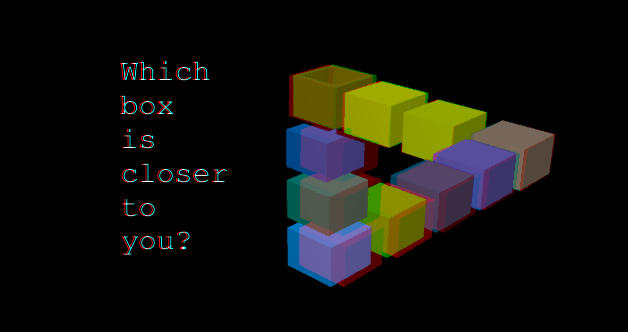OCCT 7.2.0 beta version is available

Thu, 08/03/2017 - 00:45
Hello,
We are pleased to inform you that OCCT 7.2.0 is ready for beta testing, and invite you to test this beta version in your applications.
Use the commit tagged "V7_2_0_beta" in the Git repository for this testing. Alternatively, you can use either complete source archive or Windows installer including ready-to-use binaries built with VS 2010.
Unification of diagnostic tools in OCCT

Tue, 07/04/2017 - 09:20
For many algorithms and tools to be usable in real applications, it is essential that these algorithms provide detailed information on the encountered problematic situations. In case of error, such details can be critically important for the user to be able to recognize the reason of the problem, and then either eliminate or bypass it.
Boolean Expressions on shapes

Mon, 07/03/2017 - 17:43
The version 7.0 of Open CASCADE Technology features the new General Fuse (GF) based algorithm - Cells Builder. The algorithm can be very useful if you have to perform several standard Boolean operations such as CUT, COMMON and FUSE on the same shapes to obtain the final result.
Due to the possibility to get any split parts of the arguments (parts of the input shapes split in the places of intersection with other input shapes), which are called Cells (that’s where the name for the algorithm comes from), the Cells Builder may significantly simplify and speed up these operations as all intersections will be performed in a single run. In effect, the Cells Builder allows executing the Boolean expressions on the shapes, i.e. performing a sequence of standard Boolean operations in one operation.
The first version of the algorithm (available since OCCT 7.0) had limited capabilities. It worked only with the shapes of the same dimension - only VERTICES, or only EDGES, etc. Recently, the algorithm has been extended to also work with multi-dimensional input shapes. The next version of Open CASCADE (7.2) will feature this extension.
Splitting operation

Mon, 06/05/2017 - 12:48
We are glad to inform you that the next version of the Open CASCADE will feature the long-expected algorithm for splitting the shapes - Splitter algorithm. The algorithm is very useful when you need to split the group of shapes (Objects) by the other group of shapes (Tools). The algorithm will intersect and split all input shapes, but only the split parts of the shapes from the first group will be added into the result.
Gluing Options in Boolean Component

Mon, 12/12/2016 - 14:51
The next release of Open CASCADE Technology will feature the new mode of Boolean Operations - Gluing mode. It is implemented as an option for the algorithms in Boolean Component such as General Fuse, Boolean, Section, Volume Maker and Cells Builder operations. This option has been designed to speed up the computation of the intersection part of the algorithms for the special cases where the arguments do not really interfere each other, but are just touching or overlapping.
OCCT 7.1.0 beta version is available

Fri, 11/11/2016 - 20:12
Hello,
We are pleased to inform you that OCCT 7.1.0 is ready for beta testing, and invite you to test this beta version in your applications.
Use the commit tagged "V7_1_0_beta" in the Git repository for this testing. Alternatively, you can use either complete source archive or Windows installer including ready-to-use binaries built with VS 2010.
GLSL to become the main rendering path in OCCT

Thu, 08/04/2016 - 14:47
In the past, graphic card in computer was designed to perform limited set of operations. At some point, all cards had to provide the hardware-accelerated functionality called Transformation and Lighting (T&L). Application developers had to implement all features and visual effects that were not parts of the fixed set of graphic card functionality on CPU.
Building OCCT using MinGW

Wed, 03/09/2016 - 13:52
Open CASCADE Technology 7.0.0.rc can be built using MinGW-w64 on Windows platform.
MinGW is a minimalistic development environment for developing native Windows applications based on GCC. Project MinGW-w64 is its fork aimed to support 64-bit target and new APIs.
GCC (GNU Compiler Collection) remains a main compiler on Linux platform, but is a second-class citizen on platforms like Windows (with dominating msvc - a C/C++ compiler from Microsoft Visual Studio) or OS X (where Apple has pushed developers towards clang).
OCCT 7.0.0 Release Candidate

Fri, 03/04/2016 - 22:22
Hello,
We are pleased to announce that beta testing campaign of OCCT 7.0 has finished, and OCCT 7.0.0 Release Candidate is available.
This time beta testing was especially fruitful: we have got several dozens inputs from the community, which helped to improve OCCT for this release.
Stereoscopic rendering in Open CASCADE Technology

Sat, 09/12/2015 - 22:02
Stereoscopic rendering has been first introduced in Open CASCADE Technology 6.8.0. Initial support has been limited to shutter glasses and off-screen rendering. OCCT 6.9.1 improves this functionality and extends the list of supported consumer display devices.

OCCT 6.9.1.beta is ready

Fri, 09/04/2015 - 11:24
Hello,
We are going to issue a maintenance release of OCCT, numbered 6.9.1, to provide bug fixes and minor improvements over the version 6.9.0, before major release of version 7.0. The beta version of 6.9.1 is now available for testing.
Open CASCADE Technology 7.0 preview

Tue, 07/21/2015 - 09:22
Dear All,
We have finalized development of several major new features for Open CASCADE Technology 7.0.
The most essential changes -- removal of CDL and WOK -- have been raised to master branch of the OCCT Git repository last Friday, and we propose this version for public review, as "alpha" version of OCCT 7.0.
This article is aimed to give overview of the major changes already integrated, and give idea of the effort required to port existing code on the new version.
